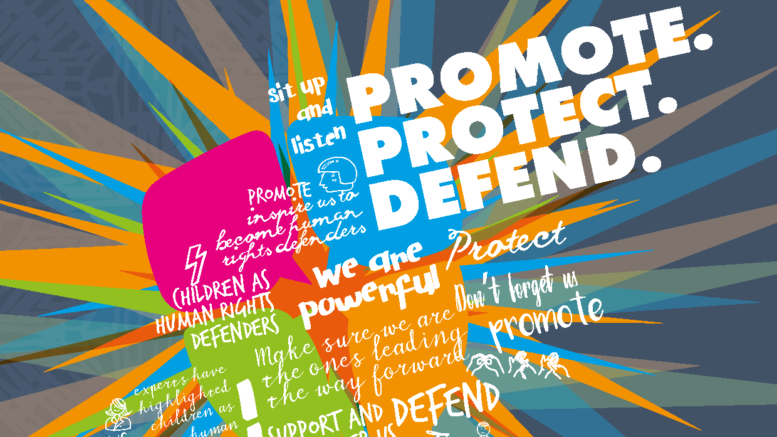Ahead of his participation in a Festival of Politics panel discussion on Scotland in 2030, the Children and Young People’s Commissioner Scotland Bruce Adamson shares his reflections on the next 10 years.
Planning ahead would be easy if we had a crystal ball, but the Futures Forum’s Scotland 2030 Programme is perhaps the next best thing. Scotland faces a raft of challenges and changes over the next decade. Some we will embrace, others will be harder to navigate. A human rights based approach will be essential to our success as a nation, and children and young people must be at the heart of that.
We cannot plan for the future if we don’t fully understand the present. This century has already been a time of significant and ongoing technological, social and political change. The Covid-19 pandemic has cast a massive shadow over 2020. No area of life has escaped untouched, and it has highlighted the disparities and inequalities already ingrained in our society. The pandemic has disproportionally affected our most vulnerable children, including those who are disabled, care experienced or living in poverty.
Poverty was the biggest human rights issues in Scotland before Covid. The impacts of food insecurity, income insecurity, substandard housing and digital exclusion have all worsened because of the pandemic. Mental health – and already stretched support services – was a huge concern before Covid, but we will be dealing with the added pressures created by the pandemic for years to come.
In 10 years’ time taking children and their rights seriously will be a building block of our society
Looking ahead, the one thing that will underpin our response to all these challenges is incorporation of human rights into our domestic law. The United Nations Convention on the Rights of the Child (Incorporation) (Scotland) Bill, introduced in September, is an important step in doing that. The benefits of incorporation are already clear, but by the time we reach 2030, they will be truly embedded not only into our legal system, but into our national psyche.
No longer will rights be brushed off, ignored, or partially respected; they will be fundamental and of key importance in areas such as policy, legislation, and budgets. We are starting a process of change, but in ten years’ time taking children and their rights seriously will be a building block of our society.
Another area where we will see radical change is that of participation. There is currently a democratic deficit. Children don’t have the same political power as adults, nor do they have the same economic power to influence or lobby, and systems of redress are difficult to access – so it is incumbent upon all of those in power to make special efforts to ensure that their voices are heard in all decisions that affect them.
Scotland has world leading youth led organisations like the Scottish Youth Parliament and incredible expertise in children’s participation. Over the next decade we need to build on these ensuring the efficiency and legitimacy of decision making through children’s participation in it.
Children’s voices must be heard loudly, and the value of their leadership must be acknowledged
Outside of formal decision making structures the role of children’s human rights defenders will grow over the next decade. Children and young people have demonstrated their leadership on a global level on issues such as climate change and in Scotland our Promote, Protect, Defend report set out what we need to do to support the incredible work of young human rights defenders.
As we look to 2030, children’s rights must be at the heart of all that we do, their voices must be heard loudly, and the value of their leadership must be acknowledged.
Read the Futures Forum’s Report: “Scotland 2030: A Positive View of Our Future”
Scotland’s Futures Forum exists to encourage debate on Scotland’s long-term future, and we aim to share a range of perspectives. The views expressed in this blog are those of the author and do not necessarily reflect the Futures Forum’s views.

